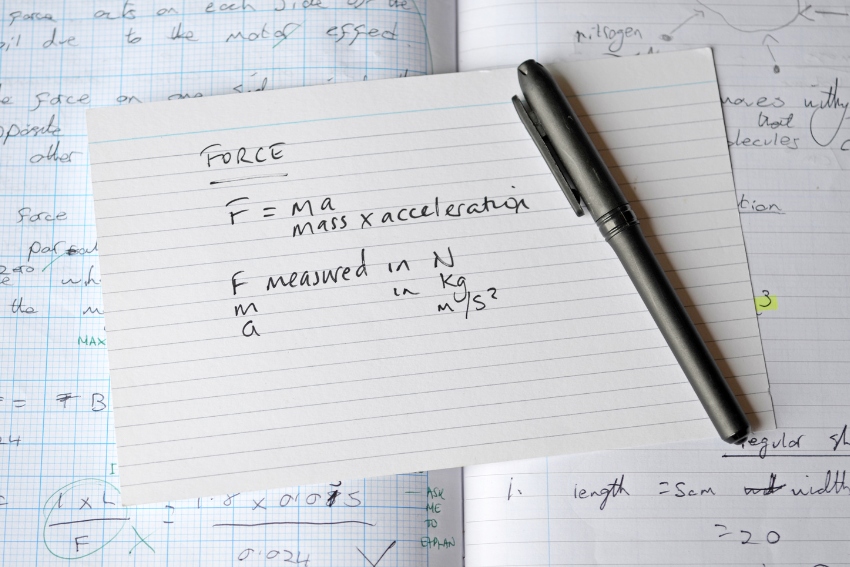Before we start talking about failing your GCSE’s let’s make sure we are aware of when a student passes the exam – A pass in GCSE (General Certificate of Secondary Education) is typically considered to be a grade 4 or above on the new grading scale in England, which ranges from 9 (the highest) to 1 (the lowest). In Wales and Northern Ireland, where the A* to G grading scale is still used, a grade C or above is considered a pass.
Is Your Life Over if You Fail Your GCSE Exams?
No! Your life is not over if you fail your GCSE exams. While GCSEs can be stressful and challenging, they’re not the only measure of your worth or future success. Many people have failed their GCSEs and still gone on to lead successful and fulfilling lives. It’s important to remember that you can always retake the exams or explore alternative pathways. If you’re also unsure about your next steps beyond GCSEs or A Levels, check out our guide on what to do after A Levels for more options and direction. Failing your exams does not define your future.
Table of Contents

If You Fail One of Your GCSE Exams, You Will Still Have Plenty of Options
TLDR – What to Do if You Fail Your GCSEs?
- Retake the subjects you want to improve in at your local school or college where you’ll be able to study alongside your peers.
- Change up your GCSE subject choices altogether.
- Check your sixth-form requirements – maybe you don’t even need to pass certain subjects to get in
- Remember – retaking GCSE English and GCSE maths is mandatory until you’re 19. If you’re specifically concerned about what happens if you fail your GCSE Maths, we have a detailed guide on this topic.
📌 Focus on the Subjects that are Important to You
If you fail your GCSE exams and do not want to retake every subject, you can focus on the subjects that are most important to you and that you are most passionate about. This will allow you to focus your efforts and energy on the areas where you are most interested and motivated, which can help you to improve your grades and achieve your goals.
📌 Research the Requirements of Universities that You are Interested in
If you fail a GCSE subject and are concerned about how it may impact your future education or career, it can be helpful to research the requirements of universities that you are interested in. Many universities have specific requirements for admission, including a minimum number of GCSEs or specific subjects that you must have passed. By researching the requirements of the universities that you are interested in, you can determine whether the subject you failed is a requirement for admission. If it is not, you may be able to focus on other subjects and still pursue your desired educational or career path. However, it is always a good idea to speak with a university admissions counsellor or career advisor to get specific advice and guidance based on your individual situation.
Options if You Fail Your GCSE Exams
📌 Can You Resit GCSEs Next Year if You Fail Your GCSE Exams?
Yes, you can resit your GCSE exams the following year if you fail them. If you do not pass the exam, it is possible to do a GCSE resit exam in November or during the next exam period. You can also retake individual subjects or retake the entire suite of exams, depending on your individual situation and goals. It is important to note that resitting exams can be challenging and may require a lot of hard work and dedication. You may need to seek additional support and guidance from your teachers, parents, and peers to help you prepare for the exams and improve your grades. However, resitting your GCSE exams can provide you with an opportunity to demonstrate your knowledge and skills and achieve the results you are looking for.
📌 Can You Retake GCSEs at any Age?
Yes, you can retake your GCSE exams at any time in the future if you fail them. There is no time limit on when you can retake the exams, and you can do so at any point in your life. However, it is important to note that retaking exams after a long period of time can be challenging, as the material may have changed or you may have forgotten some of what you learned. Some universities or employers may require you to have passed your GCSE exams within a certain time frame, so it is important to research the requirements of your desired educational or career path before deciding when to retake the exams.
📌 Can You Still Go to University if You Fail Your GCSE Exams?
Yes, you can still go to university if you fail your GCSE exams. While GCSEs are a common requirement for university admission, they are not the only factor that universities consider when deciding whether to admit a student. Many universities take a holistic approach to admissions and consider factors such as a student’s overall academic record, personal statement, references, and extracurricular activities when making admissions decisions. If you fail your GCSE exams, you can still apply to university and explain your situation in your personal statement or during an interview. Additionally, some universities may offer alternative entry routes for students who have not passed their GCSE exams, such as foundation courses or alternative qualifications. It is important to research the admissions requirements of the universities you are interested in and to speak with an admissions counsellor for advice and guidance.
Did you know that you can retake your GCSEs even if you passed?
How to Prepare for GCSE Resit if You Fail Your GCSE Exams?

Find Online Resources to Study on Your own
If you want to resit your GCSE exams and need to study on your own, there are many online resources that can help. Here are some suggestions for finding online study resources:
📌 Visit the websites of exam boards: Exam boards, such as AQA, Edexcel, and OCR, often have free resources on their websites, such as past exam papers, mark schemes, and revision guides. These resources can be a useful way to familiarize yourself with the format and content of the exams.
📌 Search for online revision guides: There are many websites that offer free revision guides for GCSE subjects. These guides can provide an overview of the key topics and concepts that will be covered on the exams and can be useful study tools.
You can Get more Personalised Help
If you feel like you need someone’s support academically or mentally, you can look into tutoring. There are many options awaiting you – group tutoring, in-person tutoring, and online tutoring. All of them have their pros and cons but for a student who is in year 12 and also has to take A-levels, online tutoring is the best.
You can study for GCSEs without even leaving your house. It’s convenient and you can easily find the right tutor who uses teaching methods that will be helpful to you and your learning style. Tutors can help you with getting good grades at GCSE but also they can support you throughout the whole process!
Learn more about the benefits of online tutoring here.
How Many People Fail GCSE Exams?
In 2020 and 2021, GCSE exams were cancelled and grading was done by teachers’ and lecturers’ assessments. Hence, not that many students failed. However, in 2022, a third of the students could not get a passing grade. There are many potential reasons why a person might fail an exam. Some common reasons include not studying effectively, not understanding the material, feeling anxious or overwhelmed during the exam, and not managing time well during the exam. It is important to identify the specific reasons for failing an exam and address them in order to improve performance in future exams.
To Sum Up
There is nothing to worry about, your life isn’t over if you fail your GCSEs. You can always resit or take a gap year and get some additional help from someone who already passed the exam with straight 9s. You can find top GCSE tutors on edumentors.co.uk. Edumentors’ tutors go through a robust interview process and qualification check to make sure they are suitable for teaching. All of them have scored high on their GCSEs and A-levels. Hence, they can teach effective exam techniques as well!
If you’re looking for help preparing for your next GCSE exam, consider hiring a tutor from a top university such as Cambridge or Oxford. These young tutors not only have the knowledge and expertise to help you succeed, but they can also provide emotional support and guidance throughout the process. Even if you don’t need help with resitting, you can book a session with a tutor to learn more about how to get into your dream university or to get advice and guidance on your academic and career goals. With the right tutor, you can improve your chances of success and feel more confident and prepared for your exams.
FAQ About Failing GCSEs
What are the consequences of failing my GCSE exams?
The consequences of failing your GCSE exams can vary depending on your individual circumstances and the specific requirements of your school or education system. In some cases, failing your GCSE exams may mean that you need to retake the exams in order to progress to further education or training.
It may also impact your future education and career prospects, as certain schools or employers may require certain GCSE grades for admission or employment. It is important to speak with your school or a career counsellor if you are concerned about the impact of failing your GCSE exams on your future plans.
Can I retake my GCSE exams if I fail?
Yes, it is often possible to retake GCSE exams if you fail them. The specific process for retaking GCSE exams can vary depending on your location and education system. In some cases, you may need to wait until the next exam period to retake the exams, while in other cases you may be able to retake them sooner. It is important to speak with your school or education authorities to determine the process for retaking GCSE exams in your specific situation.
How can I prepare for a retake of my GCSE exams?
📌 Review the material that you struggled with
📌 Seek extra help from a tutor, teacher, or school
📌 Create a study schedule and stick to it
📌 Take practice exams and review the results
📌 Get enough rest and manage your stress levels
Will failing my GCSE exams affect my future education and career prospects?
If you need to retake your GCSE exams, there is no need to worry. While some universities or employers may ask about your GCSE grades, they often place more emphasis on your A-level grades or other qualifications.
Retaking your GCSE exams and achieving a passing grade can help you pursue your education and career goals, and there are often alternative paths available even if you do not achieve the grades you were hoping for. It may be helpful to speak with a career counsellor or educational advisor to explore your options and develop a plan for moving forward.
Are there any resources or support available for students who have failed their GCSE exams?
If you have failed your GCSE exams, it is important to remember that it is not the end of the world and that there are often resources and support available to help you. Online forums, such as the Student Room, can be a helpful resource for connecting with other students who have faced similar challenges and for seeking advice and support.
There are also many tutoring services available online or in-person that can provide additional academic support and guidance. Finally, it may be helpful to speak with a career counsellor or educational advisor to explore your options and develop a plan for moving forward. Remember to take care of yourself and seek support from friends and family if you are feeling overwhelmed.
What is a fail grade for GCSE?
In the GCSE system, a fail grade is typically anything below a grade 4. Grades 4 and above are considered pass grades, with grade 4 often equated to a ‘standard pass’ and grade 5 to a ‘strong pass’. Grades 1 to 3 are not passing grades and are generally considered failing.
Is a 3 in GCSE a pass?
No, a grade 3 in GCSE is not considered a pass. The standard pass mark is set at grade 4, which aligns with the previous grade C under the old grading system. Grades 1 to 3 are seen as failing grades.
Is 40% a GCSE pass?
The percentage needed for a pass in a GCSE exam can vary depending on the subject, the difficulty of the exam in a given year, and the exam board’s criteria. However, typically, a mark of around 40% might be close to the boundary for a grade 4, which is considered a standard pass. It’s essential to check with the specific exam board for the most accurate and detailed grading boundaries.
What percentage of children fail their GCSEs?
In the UK, the proportion of GCSE students achieving a pass (grade 4/C or higher) in 2024 was about 67.6%. This indicates that around 32.4% of students did not achieve a passing grade. The overall pass rate can vary by subject and exam difficulty, influencing the percentage of students who may be considered to have failed their GCSEs









